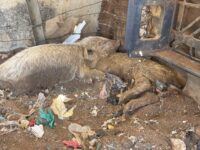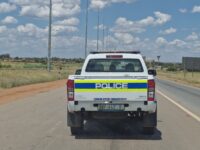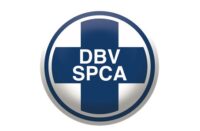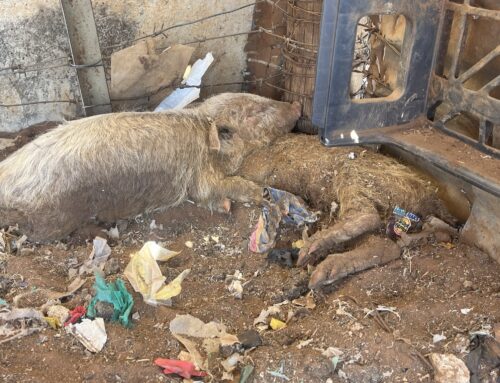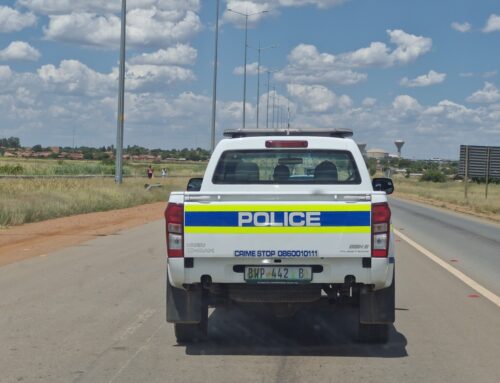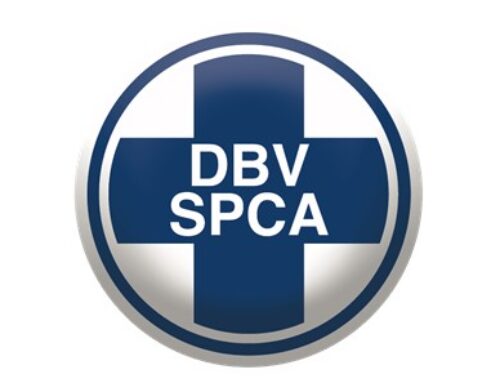An NSPCA Investigation
The NSPCA has uncovered an online bookmaker actively promoting cockfighting – one of the most barbaric forms of animal cruelty – under the watch of the Eastern Cape Gambling Board (ECGB). Despite clear warnings from the NSPCA that this practice is illegal under the Animals Protection Act 71 of 1962, as well as a directive from the Minister of Trade, Industry, and Competition, prompted by the NSPCA, the ECGB continues to turn a blind eye, maintaining that bets placed in South Africa on bloody animal fights streamed from abroad are perfectly legal. This investigative feature lays bare the timeline of events, the shocking responses from regulatory authorities, and why urgent action is needed.
A Betting Giant’s Dirty Secret
Due to legal considerations and the NSPCA considering pursuing prosecution, we cannot name the bookmaker in question. However, for the purposes of this report, we will refer to them as “Roosterbet,” a licensed South African bookmaker operating under the jurisdiction of the ECGB.
According to its own website, Roosterbet is based in Sandton, Gauteng.
On 4 December 2024, the NSPCA formally warned Roosterbet that the promotion of cockfighting on their platform and social media pages are illegal. The Eastern Cape Gambling Board (ECGB) and the National Gambling Board (NGB) were copied in this communication. In response, on 6 December, Roosterbet’s CEO claimed that promotional material would be removed immediately and that the live streaming of cockfighting events would cease while they sought further clarification from the ECGB.
Yet, the ECGB’s response – received on 9 December – was nothing short of an endorsement of animal cruelty. Responding on behalf of the ECGB, CEO Mabutho Zwane, dismissed the NSPCA’s concerns, arguing that because the cockfights were taking place in the Philippines, where the practice is allegedly legal, no South African laws were being broken. Zwane even went so far as to claim that accepting bets on such events was a lawful contingency under the Eastern Cape Gambling Act.
This justification is not only ethically reprehensible but factually incorrect. The Philippines banned online cockfighting (known as “e-sabong”) in 2022, citing widespread concerns over crime, illegal gambling, and animal cruelty.
The NSPCA refuted the ECGB’s position. On 11 December, we reminded the ECGB that Section 2A(1)(c) of the Animals Protection Act makes it illegal not only to participate in animal fighting but also to promote such fights for financial gain or amusement – exactly what Roosterbet was doing.
Despite this clear legal position, on 17 December, the ECGB doubled down, stating that Roosterbet’s actions did not constitute a violation of the Act and that no further comments were necessary. The NSPCA, however, refused to back down.
Escalation to National Authorities
Determined to seek accountability, the NSPCA escalated the matter to Parks Tau, Minister of Trade, Industry, and Competition, on 8 January 2025. We laid out clear arguments that Roosterbet was illegally profiting from illegal animal fights and that the ECGB’s stance was enabling this cruelty, as well as being in contravention of the National Gambling Act. The Minister’s office acknowledged receipt of the complaint and indicated it had been escalated for review under the National Gambling Act.
Following multiple follow-ups, on 11 March 2025, the Minister finally responded, confirming that the National Gambling Act prohibits not only the promotion but also the facilitation of gambling where the event itself is unlawful under any law. The Department of Trade, Industry, and Competition (DTIC) committed to escalating the issue with the ECGB.
The NSPCA subsequently wrote to Mabutho Zwane, CEO of the ECGB, on 23 March 2025, requesting confirmation that Roosterbet’s license to promote and accept bets on Philippine cockfighting had been revoked, in line with the Minister’s correspondence to the NSPCA.
Zwane responded the next day, attaching copies of the Minister’s letter to the ECGB along with the ECGB’s reply.
In its response to the NSPCA, the ECGB reaffirmed its stance, stating:
“The ECGB reiterates its position that [Roosterbet] only takes bets on the outcome of such events taking place outside the borders of the Republic of South Africa, and as such is regarded as a lawful contingency in terms of South African law as defined in the Eastern Cape Gambling Act, 1997 (as amended) read with section 8(a) of the National Gambling Act, 2004 (as amended).”
However, the most alarming revelation was the exchange of correspondence between the Minister and the ECGB, which was shared with the NSPCA.
On 6 March 2025 – before the Minister formally responded to the NSPCA – the Minister personally wrote to the ECGB, stating:
“It is clear that both legislations (i.e., the National Gambling Act and the Animals Protection Act) have been contravened, regardless of whether the activity (i.e., cockfighting) takes place outside of the country. The bets are taken from a contingency that is illegal in our country. I therefore request that the ECGB advise [Roosterbet] to cease offering the contingency and taking bets on such contingency.”
The Minister further advised the ECGB of his intention to convene a National Gambling Policy Council meeting, adding this issue to the agenda for further discussion.
On 13 March 2025, Zwane again responded on behalf of the ECGB, bluntly stating to the Minister that:
“The Animal Protection Act, 1962 (as amended), empowers the National Council of SPCAs to protect and regulate all animal welfare within the borders of the Republic of South Africa.”
Furthermore, the ECGB explicitly rejected the DTIC’s interpretation and directive, stating that it “welcomes the opportunity to debate this further at the proposed National Gambling Policy Council meeting.”
Cockfighting: A Blood Sport in the Shadows
Cockfighting, known as sabong in the Philippines, has long been a controversial practice. Although regulated in the Philippines, the government banned “e-sabong” (online betting on cockfighting) in 2022 due to widespread concerns. Despite this ban, Roosterbet continued offering bets on cockfights streamed from the Philippines – showing blatant disregard for both South African and international regulations.
The NSPCA has obtained irrefutable evidence of these activities, including screenshots of Roosterbet’s cockfighting promotions, recordings of live fights streamed through their platform, and betting odds offered on these events.
Time for Heads to Roll
The ECGB’s stance is a scandal of national proportions. South African authorities cannot allow an industry regulator to interpret the law in ways that condone animal cruelty. If a bookmaker had been accepting bets on dogfighting, would the ECGB’s response have been the same?
And more importantly – who is the ECGB to not only question but outright reject a directive from the very Minister responsible for administering the National Gambling Act? What gives this regulatory body the authority to dismiss the Minister’s interpretation of the law, particularly when it concerns an activity as abhorrent as animal fighting?
South Africans must ask: Who is the ECGB really protecting? Because it certainly isn’t animals. If you believe this cruelty must end, demand action now. Raise your voice. Share this investigative feature. Demand justice.
Editorial Statement
This investigative article is written and published by the National Council of SPCAs (NSPCA) in the public interest, pursuant to the objects of the NSPCA as outlined in the Societies for the Prevention of Cruelty to Animals Act 162 of 1993. As a public body, the NSPCA is committed to addressing animal cruelty, ensuring compliance with animal protection laws, and acting in the best interests of both animals and the public.
This publication serves as a statement of fact regarding the NSPCA’s investigations into illegal activities such as the promotion of cockfighting, under the legal frameworks provided by the Animals Protection Act 71 of 1962 and the National Gambling Act. The NSPCA’s standing is further supported by the judgment in National Society for the Prevention of Cruelty to Animals v Minister of Justice and Constitutional Development and Another 2017 (1) SACR 284 (CC) and the principles established in Botha v Smuts and Another 2025 (1) SA 581 (CC), particularly regarding the right to public disclosure of information already in the public domain and the NSPCA’s legal obligations to report unlawful practices.
As the Eastern Cape Gambling Board (ECGB) is a statutory body exercising public functions, and its CEO is a public official, the NSPCA is legally entitled to name and identify them in this report. This disclosure is made under the principles of privilege in the discharge of a duty and furtherance of an interest, as well as truth and public interest and fair comment in terms of South African law. The information contained herein is accurate to the best of the NSPCA’s knowledge and is intended to inform the public about ongoing issues of animal welfare and regulatory oversight.
The NSPCA acts in the public interest, seeking justice for animals and advocating for the enforcement of animal protection laws for the benefit of society.
If you are as passionate about animals and their well-being as we are, consider supporting our causes by donating.
Latest News Posts
Will You Be the One Who Takes Action?
Most people will scroll past this. But will you be the one who stands up for animals?
Animal welfare isn’t always in the spotlight, but it changes lives – for every neglected, abused, or suffering animal we help. Our teams work tirelessly, often behind the scenes, ensuring animals across South Africa are protected.
This work is relentless. The challenges are immense. But with more hands, hearts, and resources, we can do even more.
The equation is simple: the more supporters we have, the greater our reach, the stronger our impact.
Be part of the change. Become an NSPCA Project Partner today. From just R50 per month, you can help ensure that no animal suffers in silence.

